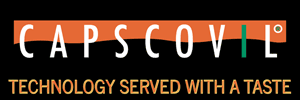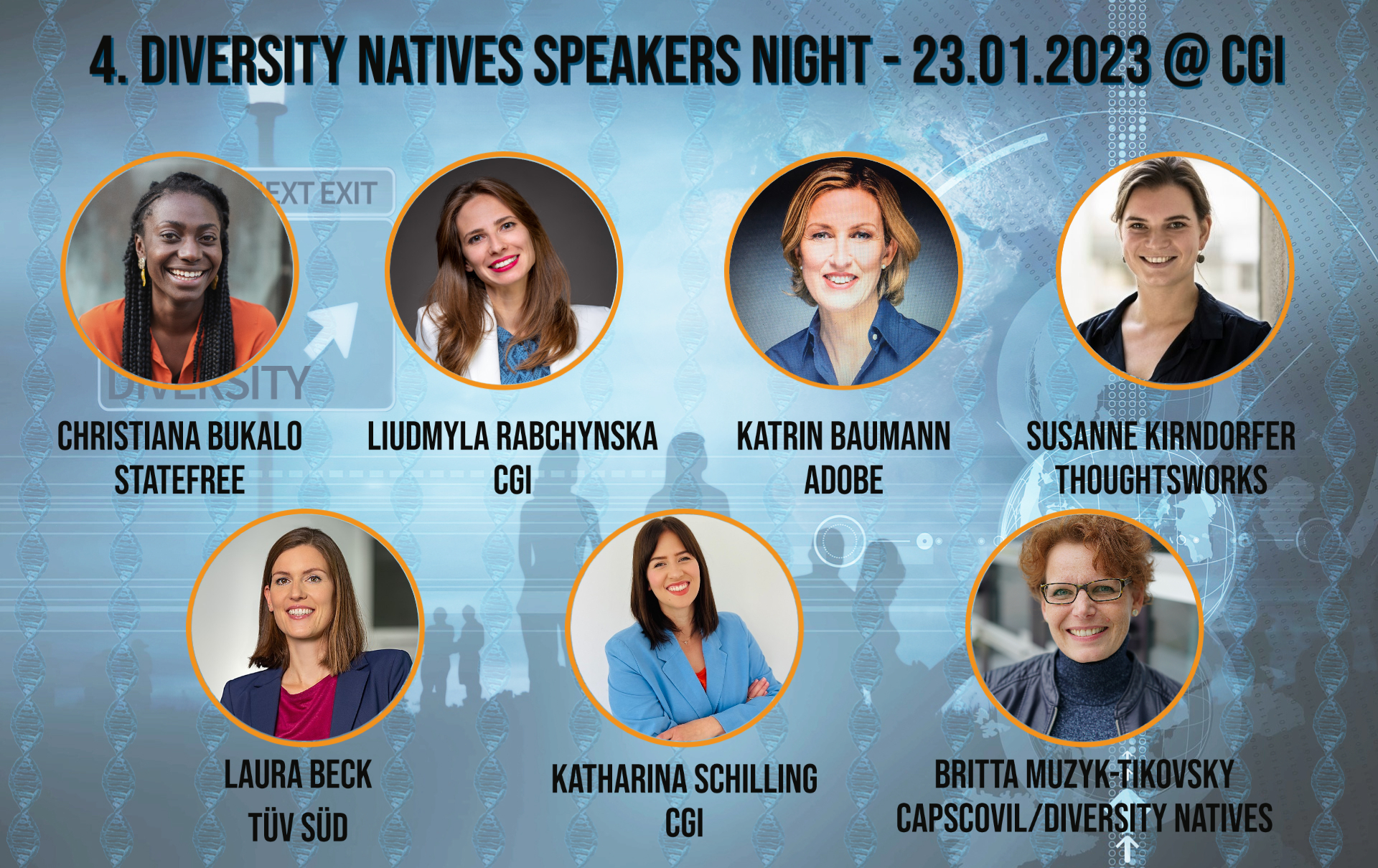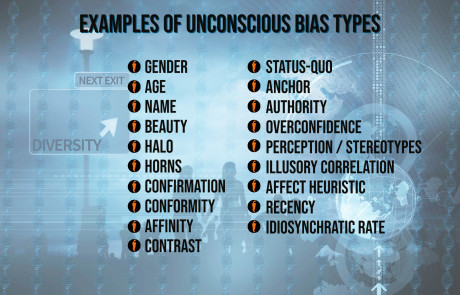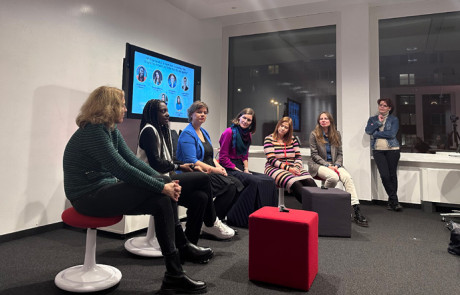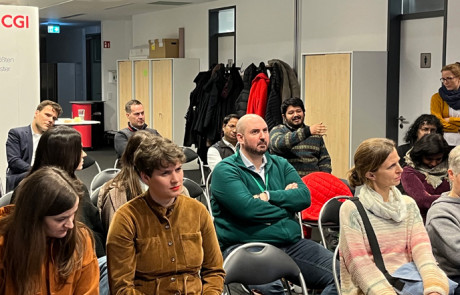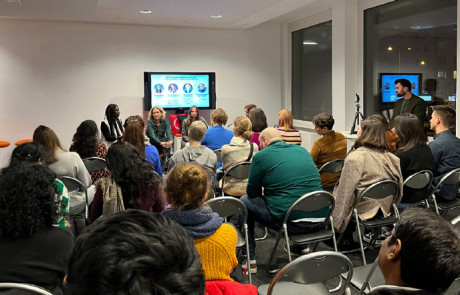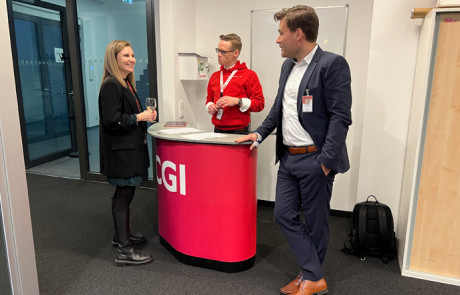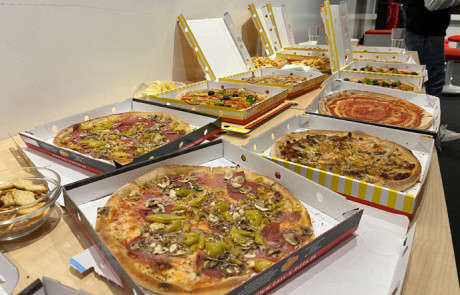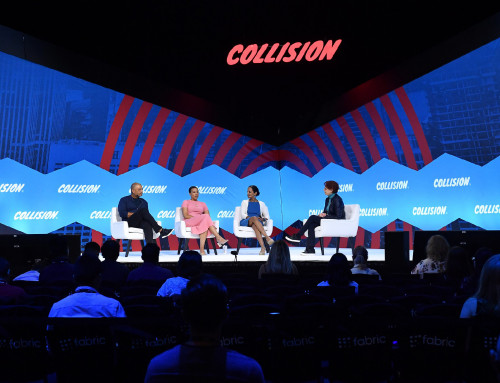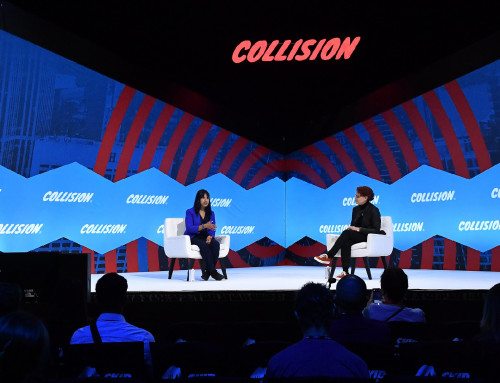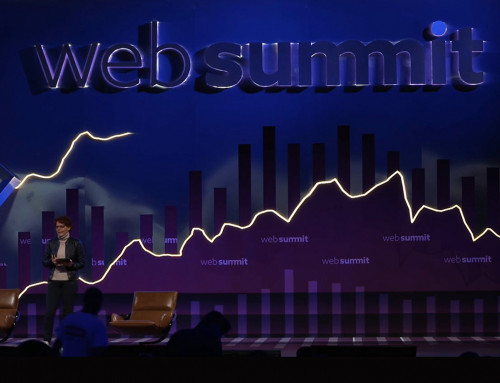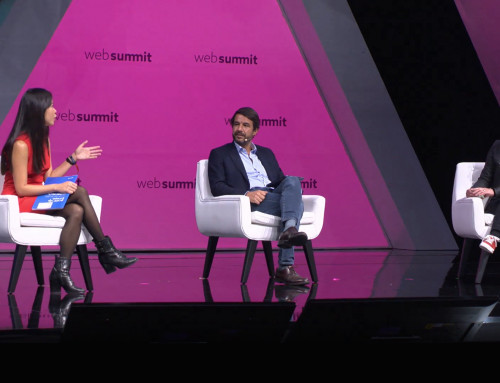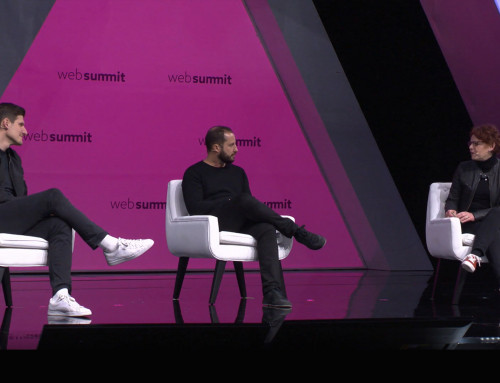Event Report
Author: Mario von Bassen
Photos: Lucia Rea, Jens Dworzak
On January 23, 2023, CGI in Munich together with the Diversity Natives initiative invited to the 4th Speakers Night. About 40 participants from companies like UnternehmerTUM, Digital Product School, Salesforce, Zeiss, Fraunhofer or ASMPT braved the cold and snowy winter weather on Monday evening to get inspired by the speakers of Adobe, Thoughtworks, TÜV SÜD and CGI as well as the initiative Statefree.World in two panel discussions and personal conversations.
But the event also offered the opportunity to discuss with how diversity in companies can be further promoted through active inclusion.
Embracing Diversity: From Unconscious Bias To Conscious Inclusion
The Speakers Night was opened by Sebastian Gerling, Vice President Consulting Services at CGI, and Britta Muzyk-Tikovsky, owner of Capscovil Innovation Agency and founder of the Diversity Natives initiative. The central theme of the evening was how we can all recognize the different types of bias in our daily lives, deal with them in the best possible way and thus ensure greater inclusion and equal opportunities. Harvard University’s Implicit Association Tests can be used to test personal biases on various diversity topics. The regular newsletter Chillipicks summarizes curated news on innovation in DEI, ethics and sustainability in the technology sector in short vignettes. A new type of storytelling is aiming at minimizing unconscious bias in reading news.
CGI – one of the world’s largest independent IT service providers with more than 5,000 corporate clients and €8.1 billion in revenue – employs around 90,000 people at 400 international locations. In addition to ensuring operational excellence in critical business processes sustainably, a key focus of CGI is on diversity.
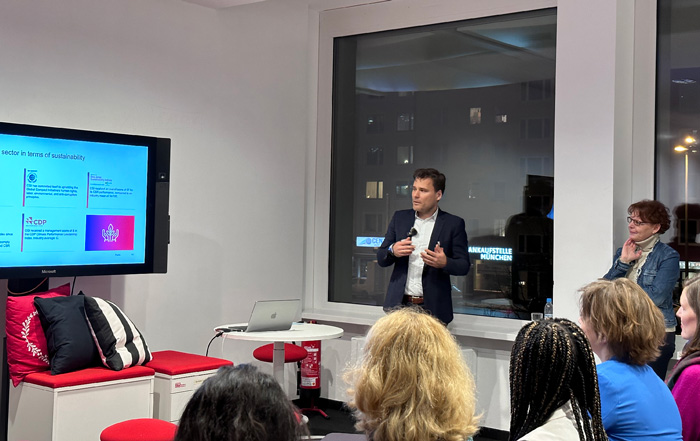
Sebastian Gerling gave a brief insight into the company’s own IP on this and what services are available to clients.
The first step is to analyze to what extent DEI measures are already effective in 7 diversity areas related to gender, race/ethnicity, social background, physical/mental ability, age, religion and sexual orientation. Further steps can be derived from this. For example, CGI is looking at ways to improve the recruiting process within the company with various tools. These include the “Scan Neutral” application, which can be used to check and correct the language neutrality of website texts and job advertisements.
Identifying needs, defining solution and creating visibility to remove unconscious bias
Panel discussion: Christiana Bukalo – Co-Founder, Statefree, Katrin Baumann – Senior Director EMEA Integrated Marketing and Diversity & Inclusion Leader, Adobe and Liudmyla Rabchynska – Executive Consultant, CGI, OECD Consultant, Former Deputy Minister – Ministry of Digital Transformation of Ukraine in conversation with Britta Muzyk-Tikovsky – Managing Director Capscovil und Gründerin der Initiative Diversity Natives.
Identifying needs, what does that mean exactly? With this question, Britta Muzyk-Tikovsky opened the first of two panels that evening.
Christiana Bukalo answered the question in the context of her life story. Due to various bureaucratic hurdles and her origin she is officially stateless. According to her, each person identifies their own needs individually, that is, depending on the situation the person is currently in. But how do we approach stateless people while preventing bias?
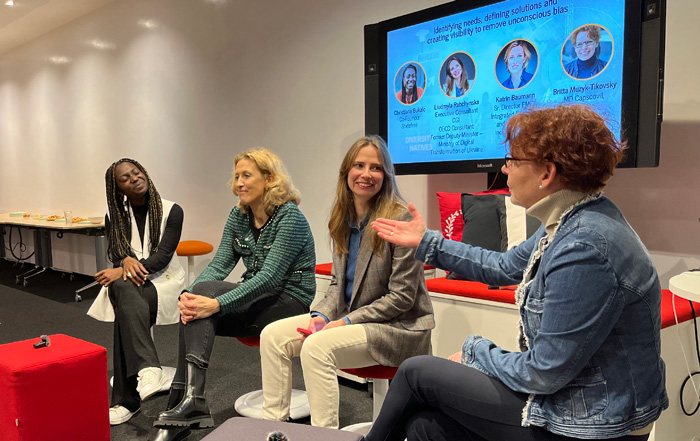
Christiana stressed the importance of being aware that many stateless people often do not know themselves why this is the case. Therefore, the best thing is to be polite and respectful to the person and avoid asking overly personal questions. It is equally helpful to question and reflect on what can be actively done when meeting a stateless person.
Liudmyla Rabchynska also faces a difficult situation due to her Ukrainian origin. Ukrainian refugees and asylum seekers encounter the effects of unconscious bias on a daily basis – whether in the context of bureaucratic assistance or the business world within Germany. However, cooperation with the EU has already led to massive improvements.
As a Diversity & Inclusion Leader at a large company, Katrin Baumann encounters bias in a different way than Liudmyla and Christiana. At Adobe, great importance is attached to diversity and awareness. Training is provided to identify biases at an early stage and to counteract them. Having members of the management at your side is an important factor, she emphasized.
What improvements can be made by the state (especially in relation to the issue of statelessness), crystallized through the contribution of Christiana. It is important not to categorize people immediately. Furthermore, it is of great importance that the German government is more aware of the problem of statelessness. In support of this, her initiative makes stateless people and their stories more visible, for example through exhibitions.
Liudmyla emphasized that countries such as Germany, in addition to short-term assistance, language courses or financial support, must also design measures for recognition and integration for the long term. This could be achieved through cooperation with companies or systematic changes such as the adaptation of jurisdiction.

Katrin concluded the first panel by giving an example of how to promote the visibility of underrepresented groups within the company. At Adobe Germany, they had introduced a “wild card” program for the executive committee, which some time ago consisted of two women and eight men. Each quarter, two women were – and continue to be – selected from middle management to participate actively and without restriction in meetings and discussions of the management body.
The aim is to increase the visibility of women in the company. Since the program was introduced, two positions on the board have been filled by women after the former managers had retired or left the company. The project has also been met by an extremely positive internal response beyond Germany’s borders.
How to actively support diverse people, increase inclusion at work and become an ally
Panel discussion: Susanne Kirndorfer – Head of Diversity, Equity & Inclusion, Germany, Thoughtworks and Laura Beck – LGBTIQ* Ally, Business Line Manager Online, TÜV SÜD in conversation with Katharina Rilling – Lead Consultant, Wing Women Germany Heads, CGI.
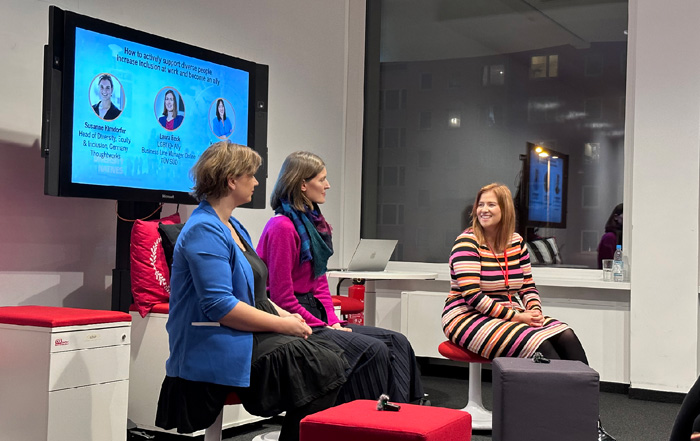
The second panel began by looking at what it means to implement diversity in companies. For Laura Beck, diversity goes far beyond gender or belonging to an LGBTIQ* community. Ultimately, she says, it’s about truly including all people. It is crucial to understand and respect people and their history.
For Susanne, diversity and inclusion means, above all, creating spaces to bring together people from different fields and backgrounds. She is currently working to ensure that more women can gain a foothold in the IT industry. But there is more to be done. This includes, for example, how diversity can be measured, how individuals be sensitized to the topic, and how important the personal contribution is.
Those who work with others in an open-minded way sometimes even increase inclusion unknowingly. Laura shared with the community an experience from her own work life where – without knowing it – she became ally. A colleague had her coming out after several years of working together and thanked her for the warm working relationship in the past.
This made her realize how important it can be to be visible as an ally for the LGBTIQ* community. She therefore added it to her LinkedIn profile. Laura also shared a tip on how we can make people aware when they are behaving insensitively towards others. It is often helpful to ask the person the question “Why are you doing this now?” or “Why are you saying this?” From her experience, the persons then often began to reflect on their behavior and adjusted it if necessary.
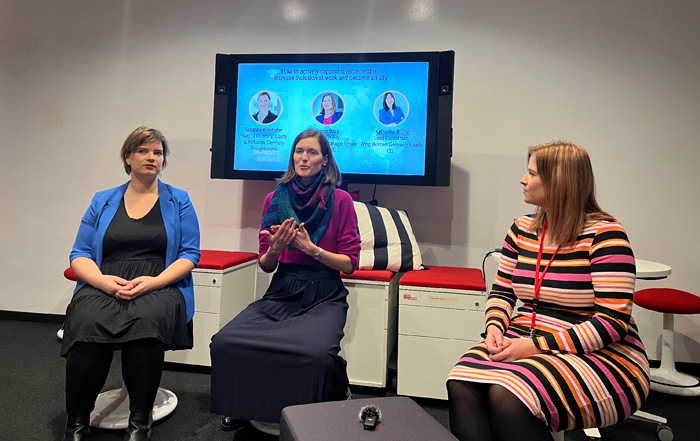
Since women represent a large part of the underrepresented groups, the question also arose as to what it means for them to grow in their career. What can companies do specifically to promote them?
Susanne and Laura agreed that it will still take some time to equalize the ratio. However, it is already possible to start in the recruiting phase, as this is where a large part of the disproportions arise, which also has a significant influence on the entire structure of the company. In addition, it is important to create transparency about diversity and to be fair to everyone. In order for companies to survive in the future, Susanne believes it is enormously important to make diversity a fixed component of the company strategy.
As an ally, Laura feels it is especially important to raise awareness among people in the community, to stand up for affected individuals across the diversity spectrum in difficult situations, and to address issues openly. However, she emphasized that there is a big difference between the professional and personal environments. Becoming an ally is not difficult, but it is also about having the courage to provide visibility for individuals who have been denied it for a long time.
What can we all do to move from unconscious bias to conscious inclusion and foster diversity and equality?
A lively discourse ensued among all speakers about the different aspects that need to be taken into account and how we can deal with them. An important factor of inclusion is to recognize that we can learn from our fellow human beings in our private and work environment every day – just as they can learn from our own behavior.
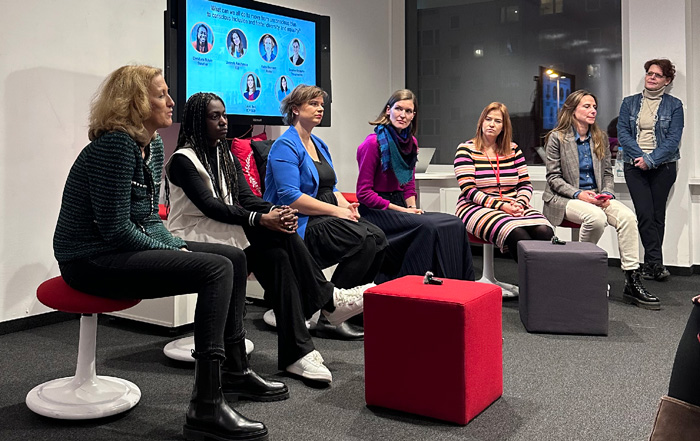
Katrin emphasized how helpful it is to give others a platform and voice. In addition to internal company programs, this is the responsibility of all of us. Christiana added that above all, it is important to continue education and to not always think of ourselves as the norm. For Susanne, how we learn to deal with mistakes also plays a crucial role. In terms of gender, for example, it is good to accept that mistakes are completely normal. However, this does not free us from the responsibility to constantly work on it so that the same mistakes are not repeated.
Laura added that it can often be helpful to focus on the behavior rather than the person when mistakes have been made. This would also prevent the person from feeling personally attacked. Liudmyla suggested that training and education can increase visibility for the issue and sharpen the mindset. She suggested thinking about how diversity also needs to be considered in the technical realm, such as within datasets and AI.
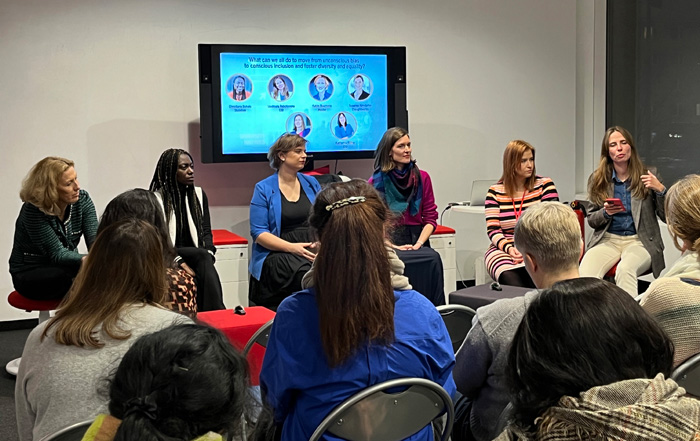
After all, AI can support us in increasing diversity and reducing biases, but at the same time it can also pose a risk and increase bias. Katharina concluded by saying that we don’t have to accept everything just because the majority sees it that way. In the following Q&A session and over pizza and drinks, the participants intensively used the opportunity to personally exchange ideas with the speakers.
A big thank you to CGI, for making the event possible and providing us with pizza and drinks, and to the Diversity Natives community for their active participation, inspiring discussions and great feedback!
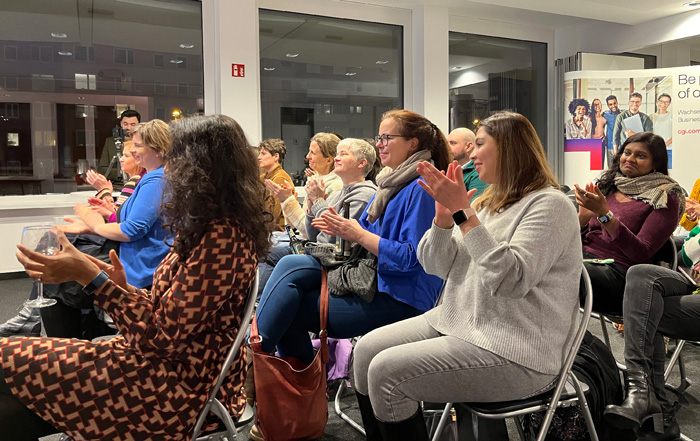
About Diversity Natives
Diversity Natives is an initiative by Capscovil’s founder Britta Muzyk-Tikovsky with the goal to foster innovation by embracing diversity and inclusion in technology and business. For more information on how to get involved as a business, sponsor, ambassador, or community member, visit the website or send us an email.
